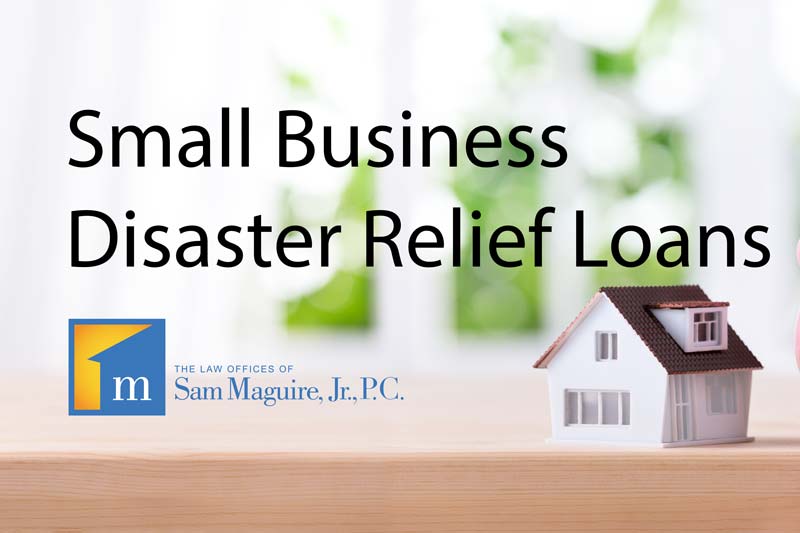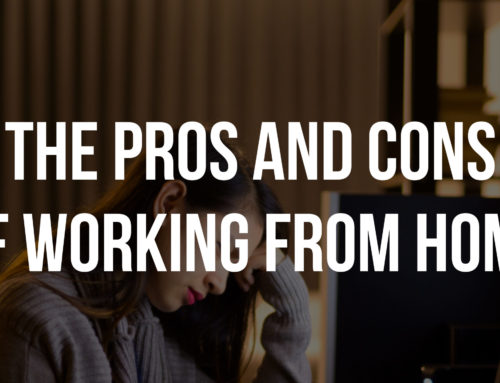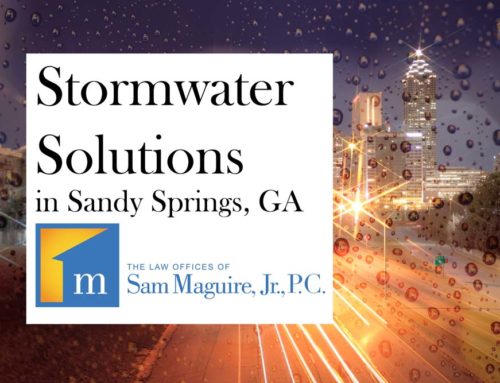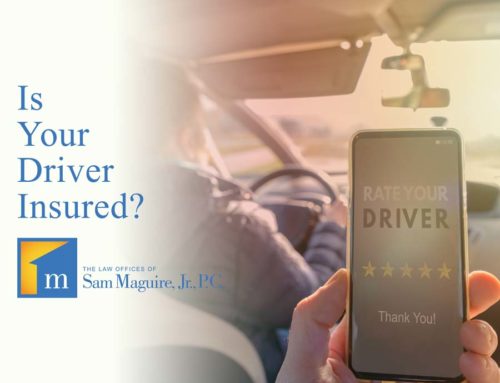SBA Announcement
New funding was approved but it won’t last long! Contact us today to help get your loan ready!
SBA Loans under the C.A.R.E.S. Act 2020
The Coronavirus Aid, Relief, and Economic Security Act, otherwise known as the C.A.R.E.S. Act, was passed by the federal government and signed into law by the President on March 27, 2020. This was done in an effort to counter cash shortage issues and help meet the working capital requirements of some businesses. Under this act, there will be many new resources available for small businesses, as well as certain non-profits and other eligible employers that may not meet the traditional small business thresholds.
Keeping yourself informed is of the utmost importance in trying times like these. We can manage into prosperity or decline, but we can not manage into uncertainty. The best course of action at this time is to gather the facts and make informed choices. With this in mind, there are two specific loan programs within the C.A.R.E.S. Act that small business owners should pay particular attention to.
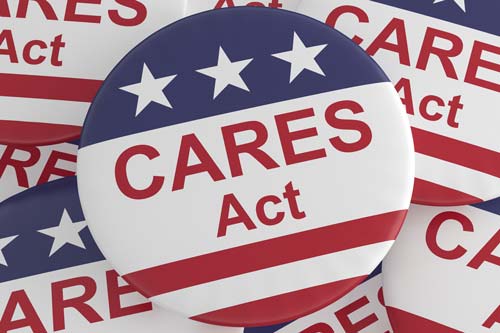
The Paycheck Protection Program (PPP)
The Paycheck Protection Program, or PPP, provides loans guaranteed by the federal government intended to allow small businesses, of 500 employees or less, to continue paying their employees and cover other expenses during this time of economic unrest. This program goes into effect Friday, April 3rd for small businesses and sole proprietorships and April 10th for independent contractors and the self-employed individuals. Our recommendation is to fill out the application now, in full, before the local banks and FDIC branches become overloaded.
A sample of the PPP application can be viewed here.
The C.A.R.E.S. act appropriates $349 billion for the new PPP which provides federally backed loans up to $10 million to qualifying small businesses and nonprofits. These loans are available until June 30, 2020, for eligible companies to cover the cost of things like payroll, mortgage interest, rent, utilities, and more.
Certain portions of these loans are eligible for forgiveness. PPP Loans are unsecured loans that require no collateral, personal guarantee or showing that credit is unavailable elsewhere. Additionally, these loans have a maximum 10-year term and the interest rate may not exceed 4%. In order to begin the loan application process, we recommend speaking with your local SBA-approved lender as soon as possible.
Update: Payment Protection Plan (PPP) Loan Forgiveness Changes
S.4117 – Paycheck Protection Small Business Forgiveness Act
This bill modifies loan forgiveness under the Paycheck Protection Program established to support small businesses in response to COVID-19 (i.e., coronavirus disease 2019).Specifically, the bill provides for automatic forgiveness of a paycheck protection loan that is not more than $150,000 if the recipient submits a one-page form. Further, it prohibits any enforcement or other action against a lender relating to loan origination, forgiveness, or guarantee based on the lender’s reliance on certifications or documentation submitted by a loan applicant or recipient.
Are you a Independant Contractor? Let’s Answer Your Questions!
Economic Injury Disaster Loans (EIDLs) Program
The CARES Act broadened the SBA’s existing Economic Injury Disaster Loan program eligibility to include any business with not more than 500 employees, any individual operating under a sole proprietorship or as an independent contractor, and more. The C.A.R.E.S. Act also permits applicants to request an advance of up to $10,000 to pay allowable working capital needs.
The EIDL Application is available online here.
This advance is basically a grant that is not required to be paid back, even if the application is ultimately denied. In order to complete an electronic funds transfer, applicants will need to provide their bank account number and routing number.
Under the C.A.R.E.S. Act, the SBA can approve a loan based entirely on the credit score of the borrower or other means of determining the borrower’s ability to pay back the loan. This means they may not require the submission of tax returns, which should speed up the approval of these loans throughout the covered period.
Pandemic Unemployment Assistance (PUA) Program
The C.A.R.E.S. Act provides supplementary unemployment insurance to individuals who would traditionally be excluded from receiving unemployment benefits. This includes independent contractors (1099), gig workers, self-employed individuals, and workers with insufficient work history to qualify for regular coverage. Additionally, this program can provide coverage for workers who have exhausted the standard unemployment benefits and extended federal benefits.
To qualify for the PUA Program an individual must certify that they are ineligible for traditional unemployment under federal or state law. Additionally, they must certify that they are able and available to work, but are unemployed, partially unemployed, or otherwise unable to work due to one of the following reasons:
- They have been diagnosed with COVID-19 or are experiencing symptoms and seeking diagnosis;
- A member of their household has been diagnosed with COVID-19;
- They are providing care for a family member or household member who has been diagnosed with COVID-19;
- They are providing care for a child or other household member whose school or care facility has closed due to COVID-19;
- They are unable to reach their place of employment due to a quarantine imposed as a result of COVID-19;
- They are unable to reach their place of employment because a healthcare provider has advised them to self-quarantine due to COVID-19 concerns;
- They have been unable to start a job that they were scheduled to commence due to the COVID-19 emergency;
- They have become the primary breadwinner or support for a household after the death of the previous head of the household due to COVID-19;
- They had to quit their job as a direct result of COVID-19;
- Their place of employment is closed as a result of the COVID-19 emergency;
- They meet any additional criteria established by the Secretary of Labor.
Notably, if an individual is able to work from home or otherwise receives paid leave, they will not be eligible for the PUA program.
The Georgia Department Of Labor is working on modifications to its current online unemployment application. They are adding new questions to identify those individuals who may be eligible for PUA. This updated application should be available on their website Monday, April 13, 2020.
The GA DOL provided information related to the pandemic here.
https://dol.georgia.gov/gdol-covid-19-information
For a thorough explanation of the Paycheck Protection Program, Economic Injury Disaster Loans, and other helpful links we have compiled the following list of resources:
- C.A.R.E.S. Act Full Text
- Small Business Owner’s Guide to the C.A.R.E.S. Act
- SBA Paycheck Protection Loan
- Disaster Loan Applications
- SBA Loans
- Tax Foundation C.A.R.E.S. Act
- Department Of Labor Coronavirus Resource
- U.S. Small Business Administration Georgia District Office
- SBA-Approved Lenders in Georgia
- US DOL New Guidance On Unemployment Insurance Flexibilities
Adjusted Business Practices
The Law Offices of Sam Maguire Jr. P.C. has made some changes in an effort to protect our employees and clients from exposure to the novel coronavirus. With Governor Kemp’s executive order on March 31st, 2020, we are currently authorized to provide notary and witness services using approved audio/video software with the permission of all involved parties. Additionally, we provide mobile title services and E-Filing of documents and/or instruments that need to be recorded at county offices.
Give us a Call At 404-257-8885 or contact us below!
[callrail_form form_id=”FORa4bebd2edbe644b28f69735c374b2967″]
Please reach out to the Law Offices of Sam Maguire Jr. P.C. with any questions you may have regarding our mobile title, E-filing, and notary services.


